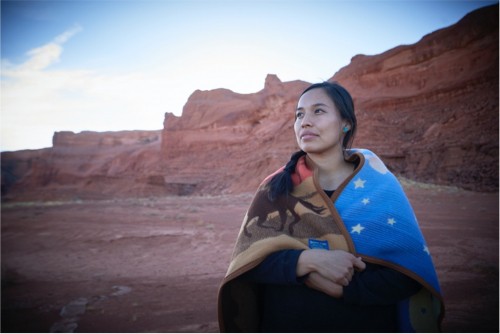
Understanding the Causes of Adult Pneumonia
Pneumonia is a leading cause of hospitalization and death throughout the world. There are many different causes of pneumonia. In the United States, people aged 65 years and over have the highest pneumonia-related illness and death. We know that rates of pneumonia among Navajo and White Mountain Apache adults are much higher than the general population of the U.S.
Pneumococcal disease is an infection that is caused by bacteria called Streptococcus pneumoniae (pneumococcus). Diseases caused by pneumococcus include pneumonia, blood infection, ear and sinus infection, and meningitis. Persons of all ages can become sick with pneumococcal diseases, and those at most risk are the very young and the elderly. The causes of adult pneumonia and the amount of pneumonia that is caused by pneumococcus in unknown in Navajo Nation and White Mountain Apache Tribal lands. Understanding this will help us understand the best way to prevent pneumonia.
CAIH conducted a research study on the Navajo and White Mountain Apache Reservations to determine the causes of pneumonia in adults, the burden of pneumococcal pneumonia in adults after PCV13 was introduced, and the effectiveness of PCV13 given to older adults against hospitalization with pneumonia. (PCV13 is the pneumococcal conjugate vaccine that protects against 13 serotypes, or strains, that cause pneumococcal pneumonia.) This study enrolled adult patients admitted to the hospital because of pneumonia to find out what bacteria/virus caused the illness. Three samples: a swab from the back of nose, a swab from the back of the mouth, and a urine sample were collected for the study to help determine what bacteria caused the pneumonia. Study doctors and nurses also reviewed the medical charts of participants to determine possible risk factors for pneumonia.